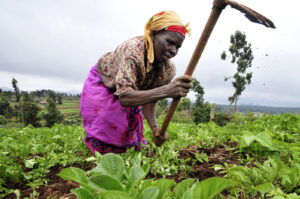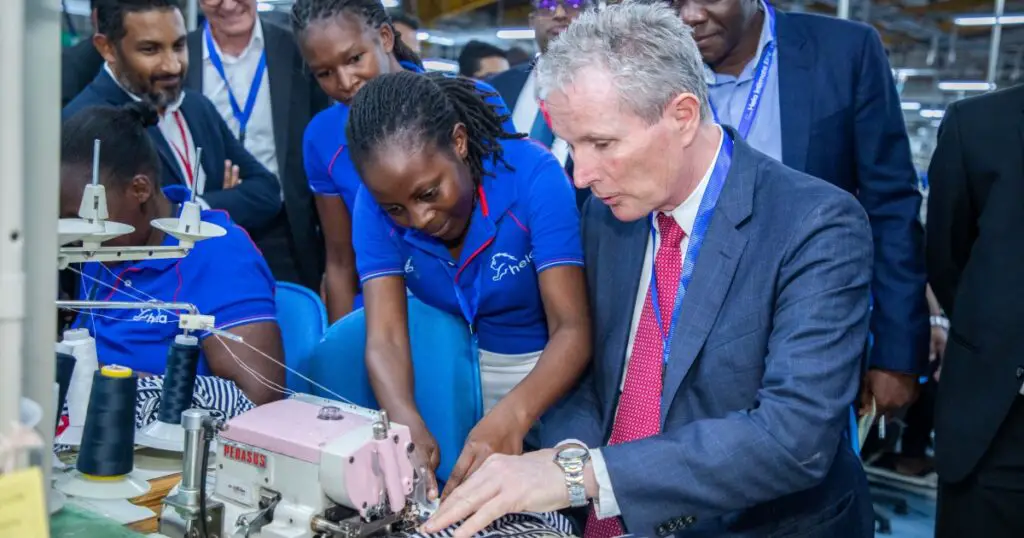- Kenya’s private sector enjoyed a much more stable business environment in April amid continued job creation in the market, with the country enjoying the lowest inflation in two years.
- Employment growth continues as the country’s economy remains on a growth trajectory.
- The headline PMI registered fractionally above the 50.0 neutral mark at 50.1 in April, up from 49.7 in March.
Kenya’s private sector enjoyed a much more stable business environment in April amid continued job creation in the market, with the country enjoying the lowest inflation in two years.
The latest Purchasing Managers’ Index by Stanbic Bank depicted broadly steady operating conditions across the sector during the month, as order book volumes and output levels have changed little since March.
The 12-month outlook continued to rebound sharply from February’s record low, and employment growth was maintained, as the country’s economy remained on a growth trajectory.
World Bank has projected Kenya’s growth to reach 5.2 per cent on average during 2024-2026, mainly driven by the private sector as business confidence strengthens and the public sector continues to scale back.
During the month under review, average input prices fell for the first time in nearly four years, driven by a record monthly fall in purchasing costs.
The headline figure derived from the survey is the Purchasing Managers’ Index (PMI). Readings above 50.0 signal improved business conditions in the previous month, while readings below 50.0 show a deterioration.
The headline PMI registered fractionally above the 50.0 neutral mark at 50.1 in April, up from 49.7 in March.
“Private sector activity steadied in April, following a soft print in March. Output and new orders were neutral during the month as firms reported a balanced inflow of new business despite concerns from some businesses about the heavy rainfall across the country,” said Christopher Legilisho, Economist at Standard Bank.
Read also: Kenya’s business conditions weaken despite easing inflation
Devastating torrential rains
Devastating torrential rains, floods and landslides in the country have killed over 250 people in recent weeks and displaced over 230,000 people, with the capital, Nairobi, among the most hit.
“We share these concerns and worry that growth will slow in Q2 2024 because of the widespread devastation and disruptions caused by the heavy rain,” Legilisho said.
“That said, there was a notable increase in jobs created, quantities purchased, and inventories held by firms during the month, reflecting increases in existing workloads and prospects of new business,” Legilisho added.
The latest reading was broadly in line with the trend for 2024 so far (50.2) and signalled a broad stabilisation in operating conditions.
Since the Stanbic Bank Kenyan survey began in January 2014, the PMI has been 51.3. The volume of new business received by Kenyan private sector companies remained broadly stable in April, as has been the case throughout 2024.
This continued a relative improvement compared with 2023 when new orders fell ten times. Total private sector output showed a similar trend in the latest period, with the sub-index close to the neutral threshold and the third-highest since January 2023.
Outstanding business increased slightly for the third time in four months. Expectations towards output over the next 12 months continued to recover strongly from February’s survey-record low, with overall sentiment the strongest since March 2023.
Confidence reflected planned investment in marketing, capacity upgrades, new branches, recruitment and growth in other African markets.
Growth forecasts were strongest among service providers. With confidence in the outlook returning, companies raised their employment numbers for the fourth month of April.
The rate of job creation has picked up slightly since March but has remained below the survey trend. April data signalled weaker price pressures in the Kenyan private sector.
“Input, purchase, and output prices declined in April, further signalling an easing in price pressures across most sectors surveyed apart from construction and agriculture. This aligns with our view that inflationary pressures have abated. Nonetheless, wage pressures were still prevalent as firms continued to hire staff and increase inventories because they anticipated improved demand,” Legilisho said.
Read also: Kenya’s Distressed Debt Levels a Threat to Development – experts
A fall in input costs for Kenya’s private sector
Average input costs fell for the first time since June 2020, and only the fourth time since the series began in 2014.
The wholesale and retail sectors posted the biggest decline, while the only sectors to see input costs rise were agriculture and construction. Purchase prices fell for only the second time in the survey history and at a record rate.
Conversely, wages rose the fastest in eight months, albeit modestly overall. Kenyan firms increased their purchases of inputs in April, only the fourth month-on-month growth seen in the past 15 months.
However, the expansion rate was modest, reflecting the lack of growth in new work in April. Suppliers’ delivery times continued to fall on average as vendors competed for business, despite some reports of flooding causing delays. Concurrently, firms could expand their inventories for the third consecutive month.
“On expectations for the next 12 months, business optimism increased to a 13-month high as firms foresee growth, led by the services sector,” Legilisho noted.
Read also: Kenya’s economy strengthened in 2023, forecast to grow by 5.2% this year — World Bank
Leading indicators
Meanwhile, leading indicators point to the continued strong performance of the Kenyan economy, reflecting robust activity in the agriculture and service sectors, particularly accommodation and food services, and information and communication.
“The economy is expected to remain strong in 2024, supported by the resilient services sector, robust performance of the agriculture sector, continued implementation of Government measures to boost economic activity across priority sectors in line with the Bottom-up Economic Transformation Agenda (BETA), and improved global growth outlook,” Central Bank of Kenya governor, Kamau Thugge, said.
The March 2024 Agriculture Sector Survey shows that respondents expect inflation to decrease in the next three months because of lower food prices in line with the expected favourable weather conditions, the appreciation of the exchange rate, and the reduction in fuel prices.
Inflation dropped to the lowest level in two years, recorded at five per cent in April, down from 5.7 per cent in March.
The CEOs and Market Perceptions Survey revealed increased optimism about business activity and economic growth prospects for the next 12 months.
The stronger optimism was also attributed to enhanced agricultural performance because of favorable weather and government interventions, easing inflation, strengthening the Kenya Shilling and a resilient private sector.
Respondents remained concerned about taxation, high interest rates, and geopolitical risks.











